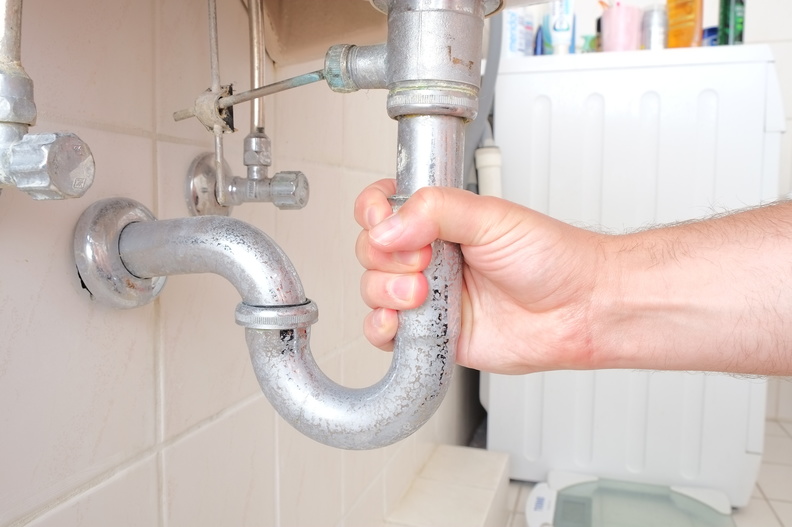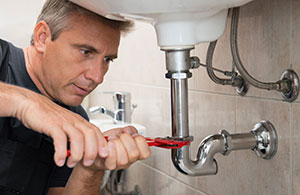Fast Plumbing Advice for Urgent Issues Until Support Arrives
Fast Plumbing Advice for Urgent Issues Until Support Arrives
Blog Article
What are your thoughts and feelings on Expert Tips for Managing a Plumbing Emergency Until Help Arrives?

Plumbing emergency situations can strike any time, causing anxiety and prospective damages to your home. Whether it's a burst pipeline, a clogged up drain, or a leaking faucet, recognizing just how to take care of the scenario until a specialist plumber gets here can conserve you from additional problems. This short article supplies vital emergency situation plumbing ideas to help you minimize damage and regain control during a plumbing dilemma.
Switch off the Water
The initial step in any plumbing emergency situation is to turn off the water supply. For local issues, such as a dripping faucet or commode, shut off the valve near the component. In the case of a significant leak or ruptured pipeline, find your home's primary water shut-off valve and turn it off immediately. Recognizing the area of these valves beforehand can conserve useful time during an emergency.
Address Tiny Leakages with Short-term Fixes
Tiny leakages can rapidly become substantial issues if left unattended. Make use of these short-term fixes till expert help gets here:
While these repairs aren't long-term, they can help minimize water loss and damages.
Unclog Drains Pipes Safely
A clogged drainpipe can be an irritating and untidy issue. Here's just how to tackle it:
If these approaches don't work, stay clear of utilizing excessive pressure, as it might intensify the blockage.
Take Care Of Overflowing Toilets
An overflowing toilet can create instant mayhem. Here's what you need to do:
Shut down Your Water Heater
In particular emergency situations, such as a ruptured pipe, it's wise to shut down your water heater. This prevents getting too hot or damages to the device when water quits flowing. Switch off the power supply to the hot water heater (electric or gas) and allow it cool off to avoid possible dangers.
Temporarily Stop a Ruptured Pipe
A ruptured pipe can lead to substantial water damage in mins. To reduce the issue:
Call a professional plumbing professional instantly to attend to the trouble completely.
Handle Frozen Water Lines Meticulously
In colder climates, frozen pipelines are an usual emergency. If you suspect a frozen pipeline:
Avoid Additional Damage
Taking quick action to lessen damages can save you time and money over time. Right here's exactly how:
. Have an Emergency Situation Pipes Kit
Prepare a standard pipes emergency set to handle small problems effectively. Your package ought to consist of:
Having these devices on hand can make a substantial difference in your capacity to handle emergencies.
Know When to Call an Expert.
While quick fixes can help momentarily, certain pipes issues call for immediate expert attention. Call a plumbing professional if:.
Quickly calling an expert makes certain the issue is solved appropriately and prevents additional issues.
Conclusion.
Plumbing emergency situations can be frustrating, but with the ideal expertise and tools, you can handle the scenario effectively up until assistance gets here. By turning off the supply of water, attending to tiny leakages, and using temporary solutions, you can minimize damage and maintain your home safe. Bear in mind, these pointers are temporary services; always seek advice from a qualified plumber to handle the origin of the problem. Preparation and quick thinking are your best allies in any type of plumbing emergency situation.
8 Helpful Tips for Managing Plumbing Emergencies at Home
If your plumbing system hasn’t failed once, wait for it because almost everyone has a story to tell. Sometimes, it could be simple emergencies such as a leaking pipe, a blocked cistern, or even a big burst pipe. In situations like this, you need to have some handy tips to save you some money and from possible damages.
Take care of minor issues early.
Sometimes, you could have avoided an emergency by taking proactive measures while it was still early. Some major plumbing emergencies can be a result of an ignored minor issue. We recommend that you have items like plumbing tapes and other related items. A plumbing tape can allow you to manage minor leaks before the plumber arrives.
Cut off the water supply.
This tip is essential in almost any type of leakage problem. For problems like minor leakages in the toilet or kitchen, turn off the supply that takes water to the affected pipes. If the leakage is a major pipe, you must shut off the supply valve to the entire building. This will help you avoid flooding your home and neighbors if you share a flat.
Know your plumbing system
Folks typically move into a new apartment without understanding the water supply around the building. This can prove disastrous if a water emergency arises and the plumber is far away. The previous tip will prove useless if you don’t practice this one. More importantly, know where your water shut-off valve is located – you’ll need that knowledge to prevent potential home floods.
Have some common handy tools
There are lots of plumbing emergencies that you can handle without hiring a plumber. That’s why you must keep some tools available always. Some tools that you can use to fix simple plumbing emergencies easily include plumbing tapes, screwdrivers, thread seal tapes, plungers, pliers, tape measures, and rubber gloves.
Insulate your pipes from cold
You’ll save yourself from many plumbing expenses if you protect your water pipes from the cold. This is because of the harmful effects that cold weather can have on your pipes. During winter, your pipes can burst from being overly expected to freezing temperatures. So, make sure insulators are there to keep the pipes working correctly.
Avoid practices that will clog your toilet.
Many people indulge in practices that can damage the plumbing system of the entire building. One of these is when they use their toilet to dispose-off garbage. They flush all kinds of things, such as paper towels, bandages, hairs, female sanitary products, etc., down the toilet. This will block your toilet in the long run, incurring unnecessary expenditures. Dump such waste in the trash instead.
Check your dials regularly.
Sometimes, there could be leakages in your home without noticing them in time. So, constantly monitor your water meter dial. If the dial is reading when there is nobody using water, this is an indicator that there is leaking. Check for leaks immediately. Call a plumber as soon as possible if you can’t find any.
https://www.constructionplacements.com/8-helpful-tips-for-managing-plumbing-emergencies-at-home/

We had been guided to that article on Expert Tips for Emergency Plumbing Repairs through a buddy on our other web property. Sharing is caring. Helping people is fun. Many thanks for your time. Return soon.
Call Report this page